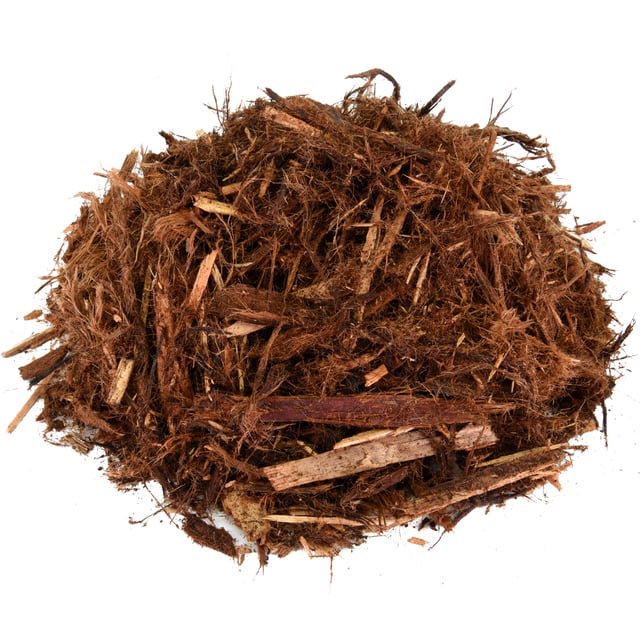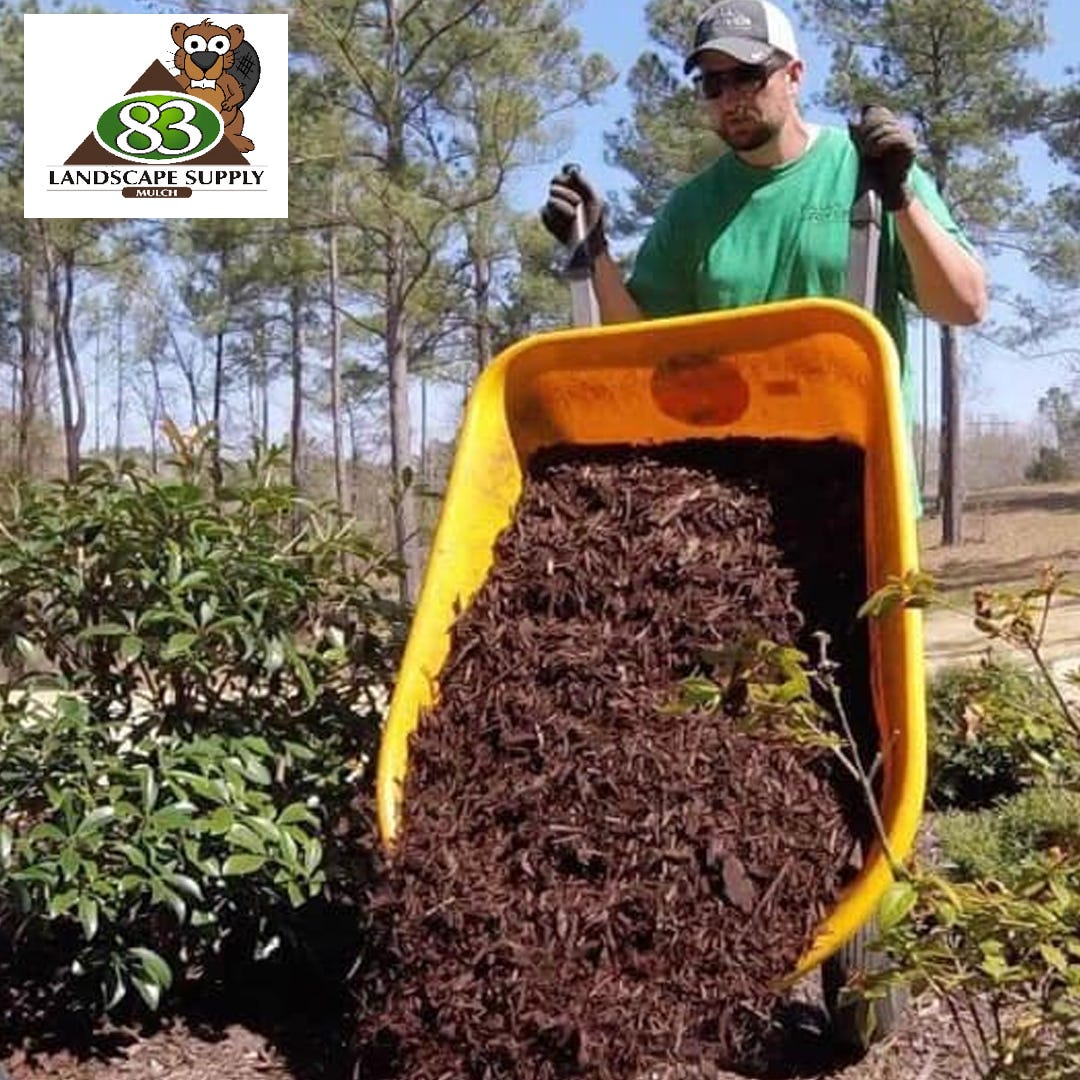Cedar mulch benefits gardens by suppressing weeds and retaining moisture in soil, creating a healthier environment for plants. Cedar mulch naturally repels insects, minimizes erosion, and adds a visually appealing touch to landscaping.
Its aromatic scent also provides a pleasant outdoor experience for gardeners. Furthermore, cedar mulch is long-lasting and biodegradable, making it an eco-friendly choice for sustainable gardening practices. When used correctly, cedar mulch can enhance the overall aesthetics and health of your garden while reducing maintenance requirements and supporting plant growth naturally.

Credit: www.southwestboulder.com
The Power Of Cedar Mulch
Natural Pest Control
Cedar mulch acts as a natural repellent against pests like insects and termites.
The scent of cedar helps to deter unwanted pests in your garden.
It creates a barrier that insects find unpleasant, reducing the need for harsh chemicals.
Moisture Retention
Cedar mulch aids in moisture retention in the soil, keeping your plants hydrated.
It helps prevent water loss through evaporation and protects roots during dry spells.
Overall Benefits Of Cedar Mulch:
- Enhances the aesthetic appeal of your garden
- Improves soil structure and fertility
- Reduces weed growth by blocking sunlight
| Benefit | Description |
|---|---|
| Natural Pest Control | Repels insects and termites |
| Moisture Retention | Helps soil retain water, keeping plants hydrated |
Enhancing Soil Health
Nutrient Leaching Prevention
Cedar mulch helps in preventing nutrient leaching by acting as a protective barrier for the soil.
Weed Suppression
Cedar mulch effectively suppresses weed growth, preventing competition for nutrients in the soil.
Environmental Impact
Cedar mulch offers several environmental benefits due to its sustainable sourcing and biodegradability.
Sustainable Sourcing
The production of cedar mulch involves the utilization of renewable and sustainable resources. Cedar trees are harvested through responsible forestry practices to ensure the preservation of natural habitats and long-term ecological balance. By choosing cedar mulch, consumers contribute to promoting sustainable land management and forest conservation.
Biodegradability
Cedar mulch is naturally biodegradable, breaking down over time and enriching the soil with organic matter. As it decomposes, it retains essential nutrients, promoting the growth of healthy microorganisms in the soil. This renewable and eco-friendly characteristic makes cedar mulch an environmentally responsible choice for landscaping and gardening projects.
Application Techniques
When it comes to applying cedar mulch, there are a few important techniques to keep in mind. Proper application ensures that you experience the full benefits of cedar mulch, such as weed prevention, moisture retention, and soil insulation. In this section, we will explore two crucial aspects of applying cedar mulch: the proper mulching depth and the frequency at which you should apply mulch.
Proper Mulching Depth
Mulching depth plays a significant role in the effectiveness of cedar mulch. To maximize its benefits, it is important to apply the mulch to the appropriate depth. The general rule of thumb is to maintain a depth of around 2 to 4 inches throughout your garden beds.
It’s important not to go overboard with mulch depth as this can lead to problems. Thick layers of mulch can restrict the flow of air and water to the soil, causing root rot, a lack of oxygen, and even attracting pests. On the other hand, mulch that is too thin may not provide sufficient insulation or weed prevention.
To achieve the proper mulching depth, it is recommended to spread a thin layer of compost or topsoil directly on the soil before applying the cedar mulch. This additional layer helps to prevent compaction and provides a better environment for your plants’ root systems.
Mulching Frequency
The frequency at which you should apply cedar mulch depends on various factors, including weather conditions, the health of your plants, and the presence of weeds. As a general guideline, you should aim to refresh the mulch every one to two years.
If you notice the mulch starting to break down or thin out, it may be time for reapplication. This is especially important if you live in an area with harsh winters or intense summers, as extreme temperatures can cause the mulch to degrade more quickly.
Before applying a fresh layer of cedar mulch, it’s essential to remove any existing weeds. This ensures that the mulch can effectively prevent weed growth by blocking sunlight and inhibiting weed germination.
In addition to weed prevention, mulching also helps to conserve moisture in the soil, reducing the need for frequent watering. This is particularly beneficial during dry spells or in regions prone to drought conditions.
| Technique | Key Point |
|---|---|
| Proper Mulching Depth | 2-4 inches depth, avoid excess mulch |
| Mulching Frequency | Refresh every 1-2 years, remove weeds before reapplying |
By following these application techniques, you can optimize the performance of cedar mulch in your garden beds. Remember to maintain the proper mulching depth and refresh the mulch periodically to enjoy the full benefits of using cedar mulch.
Maximizing Garden Benefits
When it comes to maintaining a vibrant and healthy garden, utilizing mulch is a game-changer. Among various types of mulch available, cedar mulch stands out for its exceptional benefits. Not only does it enhance the aesthetic appeal of your garden, but it also plays a vital role in retaining moisture, preventing weed growth, and protecting the soil from erosion.
Choosing The Right Type Of Cedar Mulch
Before you start spreading cedar mulch in your garden, it’s crucial to choose the right type that suits your needs.
Cedar mulch comes in two main forms: shredded and chipped. Shredded cedar mulch provides a dense covering, making it an excellent choice for areas with heavy foot traffic. On the other hand, chipped cedar mulch is perfect for large garden beds and areas where a lighter layer is required.
Another consideration when selecting cedar mulch is the decomposition rate. Freshly shredded cedar mulch decomposes more slowly than chipped mulch, providing longer-lasting benefits.
Utilizing Mulch In Different Garden Areas
1. Flower Beds and Garden Borders
Applying cedar mulch around flower beds and garden borders offers several advantages. Firstly, it helps to prevent weed growth, minimizing competition for nutrients and sunlight. Secondly, cedar mulch acts as an insulator, protecting delicate plant roots from extreme temperatures.
Additionally, when the mulch gradually decomposes, it enriches the soil with organic matter, nourishing the plants and promoting healthy growth. To maximize the benefits, ensure a layer of cedar mulch around flower beds is about 2 to 3 inches thick, taking care to keep it a couple of inches away from plant stems to prevent moisture buildup and potential rot.
2. Vegetable and Herb Gardens
Utilizing cedar mulch in vegetable and herb gardens is a wise choice. The mulch creates a protective barrier between the soil and the elements, reducing water evaporation and soil erosion. This results in consistent soil moisture levels, which is crucial for the optimal growth of plants.
Cedar mulch also acts as a weed suppressant, keeping unwanted plants at bay and giving your vegetables and herbs the competitive edge. Moreover, as cedar mulch decomposes, it releases natural oils that help deter certain pests, contributing to a more pest-resistant garden.
3. Pathways and Walkways
In addition to its functional benefits, cedar mulch can also be used to create beautiful and inviting pathways within your garden. The soft texture of the mulch makes it comfortable to walk on, while the natural aroma of cedar adds a pleasant touch.
To create pathways, simply lay down a thick layer of cedar mulch, making sure it is compacted enough to prevent displacement. Over time, the mulch will settle, so occasional maintenance may be required to maintain the desired pathway appearance.
| Areas | Benefits |
|---|---|
| Flower Beds and Garden Borders |
|
| Vegetable and Herb Gardens |
|
| Pathways and Walkways |
|
By utilizing cedar mulch strategically in your garden, you can maximize its benefits, ensuring your plants thrive and your garden becomes a serene and welcoming space. Remember to choose the right type of cedar mulch and apply it appropriately to different garden areas, reaping the rewards of reduced weed growth, improved moisture retention, and protected soil.

Credit: medium.com
Frequently Asked Questions Of Benefits Of Cedar Mulch
When Should You Not Use Cedar Mulch?
Avoid using cedar mulch in vegetable gardens, around acid-loving plants, or in humid climates prone to mold growth. Additionally, refrain from using it if you have pets that may ingest the mulch. Keep cedar mulch away from areas requiring frequent soil disturbance.
Why Is Cedar Mulch Better?
Cedar mulch is better due to its natural insect-repelling properties, long-lasting durability, and pleasant aroma. It also helps suppress weeds and retains moisture in the soil.
What Does Cedar Mulch Keep Away?
Cedar mulch keeps away insects, pests, and fungi due to its natural oils and scent.
Does Cedar Mulch Repel Bees And Butterflies?
Yes, cedar mulch can repel bees and butterflies due to its strong scent and natural oils.
Conclusion
The benefits of cedar mulch are undeniable. Its natural pest-repelling properties make it an effective, eco-friendly choice for gardeners. The ability to retain moisture and inhibit weed growth also makes it a valuable addition to any landscaping project. With its pleasing aroma and long-lasting durability, cedar mulch is a smart investment for both the environment and your garden.


